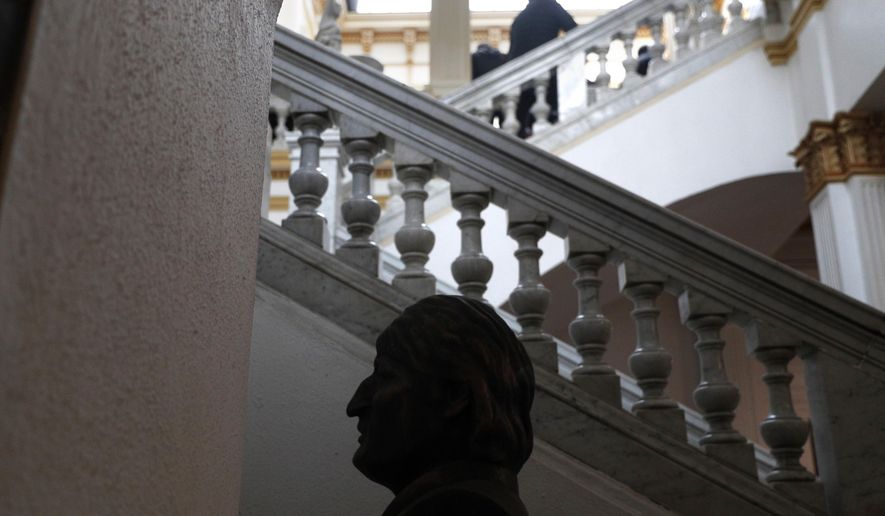OPINION:
Evo Morales had a problem. It was 2016, and the three-term Bolivian president, an ardent leftist and the first indigenous president the South American nation ever had, wanted badly to run for a fourth term in 2019. But Bolivia’s constitution had term limits, and Mr. Morales was barred from running for and serving another term.
Rather than attempt an end run around the country’s constitution, Mr. Morales did a responsible thing: He held a public referendum to amend it, and allow him another run at the office. Bolivians disagreed with the president’s plan, however, and the referendum went down by a vote of 51.3 percent to 48.7. Mr. Morales had enjoyed some successes during his first three terms, raising incomes in Bolivia by harnessing his country’s wealth of natural resources, but the people of his country were manifestly ready for somebody new. They told him so at the ballot box.
Then Mr. Morales did a less responsible thing. His “Movement for Socialism” party went to the country’s highest court, seeking to annul the term limits. The court was stacked with Mr. Morales’ cronies, and his party had every right to expect a favorable verdict.
Which they received. In a perverse yet hilarious ruling, Bolivia’s Supreme Tribunal of Justice ruled that denying Evo Morales a shot at a fourth term represented a denial of his human rights. (The list of what constitutes a “human right” continues to grow.) And so Evo was able to run again.
What he was not able to do, apparently, was win a fourth term without chicanery. Bolivia’s constitution says that if a race is separated by less than 10 percentage points, a runoff will be held. By reasonable accounts, Mr. Morales failed to clear that threshold, and would have faced a runoff against his conservative-leaning challenger Carlos Mesa. But then there was a mysterious pause in vote counting for 24 hours. When “counting” began again, President Morales was declared the outright winner.
“Hours after polling booths closed on Sunday, electoral officials released the first results of the quick count that suggested the race was close and a second-round vote would need to be held,” the BBC reported. “The official website then stopped updating for 24 hours. When it finally resumed, Mr. Morales had a lead of more than 10 percentage points.”
The Organization of American States, the European Union, and the United States called for a second round to be held. Mr. Morales refused for days and dug in, declaring himself the outright victor. Soon, thousands upon thousands of Bolivians had taken to the streets to protest.
For his economic successes, Mr. Morales was always an authoritarian at heart. Yascha Mounk, the political scientist at Johns Hopkins University, observed that President Morales “concentrated ever more authority in his own hands, denounced the opposition in aggressive terms, and placed loyalists in key institutions, from the country’s public broadcaster to its highest court.” Indeed, it was Mr. Morales’ seizure of the courts that allowed him to run for a fourth term in the first place.
Over the weekend, Evo’s luck finally wore out. After more than a week of crippling protests, Mr. Morales lost the support of the country’s police forces and military. He resigned, decrying the actions as a “coup.” (So, alas, did American legislators Ilhan Omar and Alexandria Ocasio-Cortez.)
But as Mr. Mounk argued, “What he and some of his most credulous Western supporters described as a coup was in fact something very different: proof that Bolivians — like the citizens of many other countries around the world — resent arbitrary rule. The longer they have suffered from oppression, the more they have come to value the democratic institutions that are now threatened by populists around the globe.”
Bolivia, one hopes, will now return to a democratic state, with free elections being held as soon as possible. And perhaps needless to say, Mr. Morales should not be a candidate.




Please read our comment policy before commenting.